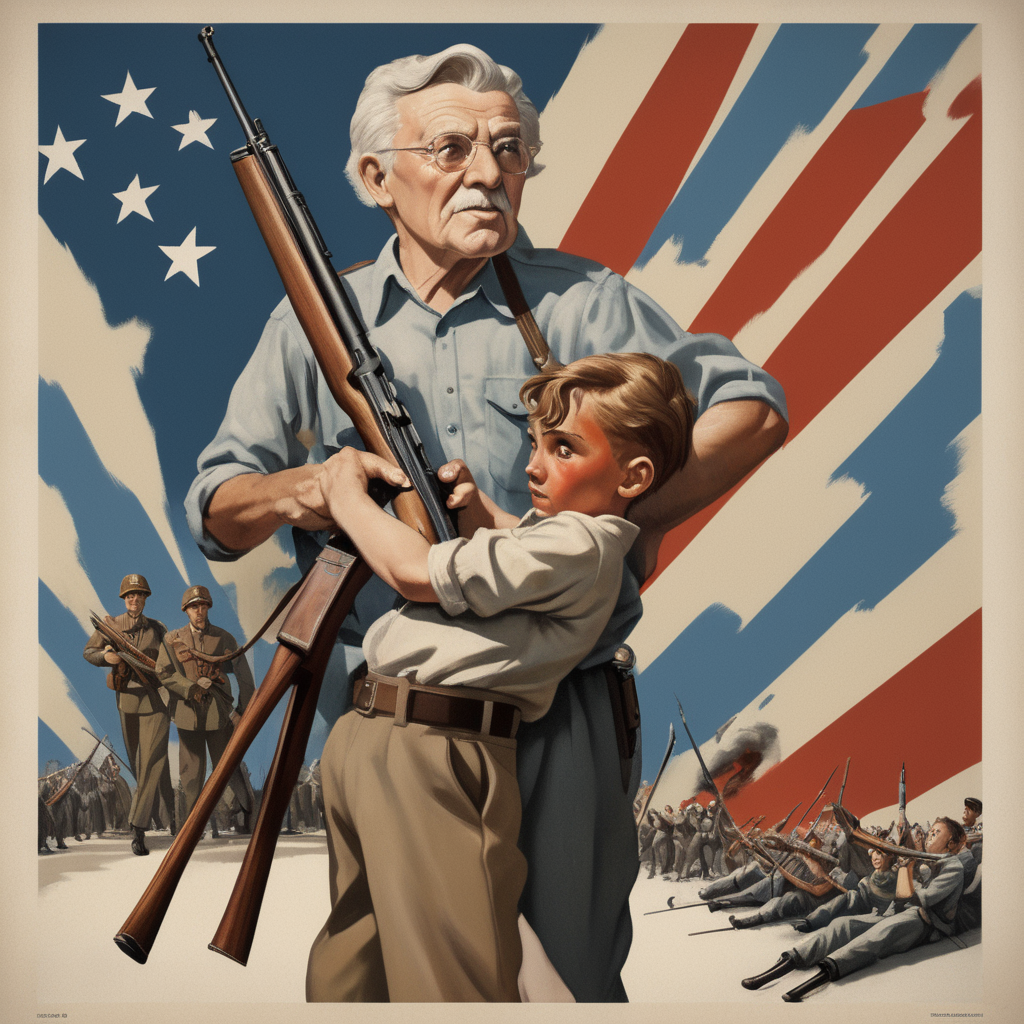Introduction: As the world faces new challenges and threats, it’s crucial to look back at history and learn from the experiences of those who have faced similar situations. The lessons of World War 2 (WW2) are especially relevant today, as they offer invaluable insights into how to survive in wartime and other extreme conditions. In this comprehensive guide, we will explore the essential skills and knowledge that our grandparents and great-grandparents relied on during WW2, and how these lessons can be applied to modern-day prepping and survival situations.
- Growing Your Own Food:
During WW2, many people were forced to grow their own food due to shortages and rationing. This experience taught them valuable lessons about self-sufficiency and sustainability that can still be applied today. Some key aspects of growing your own food include:
- Starting a vegetable garden: Learn about the best plants to grow in your region, and invest in quality seeds and tools to help your garden thrive.
- Composting: Turning food scraps and other organic waste into nutrient-rich compost can help improve the quality of your soil and reduce your reliance on commercial fertilizers.
- Raising livestock: If you have the space, raising chickens, rabbits, or other small animals can provide a reliable source of protein and other essential nutrients.
- Hunting for Food:
Hunting was another essential skill that many people relied on during WW2 to supplement their diets and ensure their survival. If you’re new to hunting, consider the following tips:
- Choose the right firearm: Select a firearm that’s appropriate for the game you’re hunting and your personal skill level. Popular options include rifles, shotguns, and bows.
- Learn about local game: Familiarize yourself with the types of game that are common in your area, as well as their habits and habitats. This will help you better understand where and when to hunt.
- Practice tracking: Developing your tracking skills can help you locate game more efficiently, increasing your chances of a successful hunt.
- Set traps: In addition to hunting, setting traps can be an effective way to catch smaller game, such as rabbits and squirrels.
- Basic Wartime Survival Skills:
In addition to growing your own food and hunting, there are several other essential skills that can help you survive in a wartime or other extreme situation. Some of these skills include:
- Building a shelter: Knowing how to build a shelter using natural materials can help protect you from the elements and keep you warm during cold nights.
- Starting a fire: Familiarize yourself with various fire-starting techniques, such as using a flint and steel or a fire bow.
- Finding water: Learn about local water sources and how to purify water for safe consumption.
- Staying hidden: Practice camouflage techniques and stealth to avoid detection by potential threats.
- Wartime Medical Techniques:
Injuries and illnesses are common in wartime situations, making it essential to have a basic understanding of medical techniques. Some key skills to learn include:
- First aid: Familiarize yourself with basic first aid techniques, such as treating cuts, burns, and broken bones.
- Herbal medicine: Learn about local plants and herbs that can be used to treat various ailments and injuries.
- Suturing: Knowing how to suture a wound can help prevent infection and promote healing.
- Utilizing Vintage Equipment:
Many preppers and survivalists have a fascination with vintage equipment, such as WW2-era firearms, MREs (Meals Ready to Eat), and other gear. While these items may not be as advanced as their modern counterparts, they can still be valuable tools in a survival situation. Some tips for using vintage equipment include:
- Proper maintenance: Regularly clean and maintain your vintage gear to ensure it remains in good working condition.
- Familiarize yourself with the equipment: Practice using your vintage gear to become comfortable and proficient with its operation.
- Stock up on compatible supplies: If you’re using vintage firearms, for example, make sure you have a sufficient supply of compatible ammunition.
Learning from the experiences of our grandparents and great-grandparents during WW2 can provide invaluable insights into how to survive in extreme conditions. By applying these lessons to modern-day prepping and survival situations, you’ll be better equipped to face the challenges of the future. Remember, the key to successful survival is to stay informed, be proactive, and never underestimate the importance of being prepared.
Keywords: WW2, wartime survival, growing food, hunting, basic survival skills, vintage equipment, medical techniques, first aid, herbal medicine, shelter, fire-starting, water, stealth, camouflage, MREs, firearms, ammunition, composting, livestock, tracking, trapping, fire bow, flint and steel, suturing.

